
The changing regulatory landscape in Europe, spanning data protection, digital services, climate action, finance, healthcare, Brexit impact, consumer protection, AI ethics, taxation, and telecommunications, presents challenges and opportunities for businesses. Adapting to evolving standards is crucial for compliance, sustainability, and success in an environment shaped by ethical considerations, innovation, and market dynamics.
Introduction:
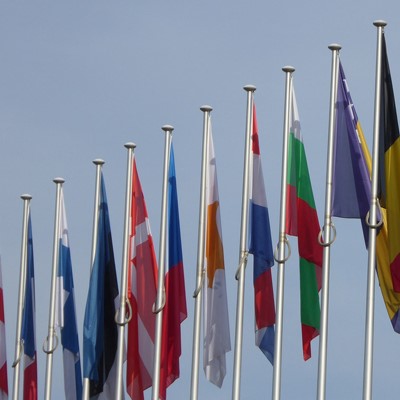
In an age characterized by technological progress, changing geopolitical scenarios, and an increasing focus on sustainability, businesses in Europe are grappling with an intricate network of regulatory shifts. Covering areas such as data protection, environmental sustainability, financial regulations, and the repercussions of Brexit, the European regulatory framework is undergoing significant changes. Navigating this dynamic landscape presents both challenges and opportunities for companies aiming to maintain compliance, uphold ethical standards, and adjust to shifting market dynamics.
A pivotal shift in recent years has been marked by the implementation of the General Data Protection Regulation (GDPR), setting a global standard for safeguarding data and privacy. Going beyond GDPR, the European Union (EU) has introduced the Digital Services Act (DSA) and Digital Markets Act (DMA) to regulate digital platforms and ensure fair competition. Simultaneously, the region is at the forefront of tackling climate change, with stringent environmental regulations influencing industries from energy to manufacturing.
As businesses grapple with the aftermath of Brexit, financial regulations are changing, and sectors like pharmaceuticals and healthcare are adapting to evolving standards. The interplay of these regulatory dynamics requires companies to not only comply with legal requirements but also to strategically align their operations with the broader goals of sustainability, consumer protection, and technological innovation.
This overview examines the various implications of the evolving regulatory landscape in Europe, delving into how businesses need to proactively adapt their strategies to flourish in an environment where compliance is more than just a legal obligation—it is a fundamental element of responsible and sustainable business practices.
Data Protection (GDPR):
The General Data Protection Regulation (GDPR) is a pivotal cornerstone in the arena of data protection, signaling a new era marked by heightened privacy standards and increased accountability for businesses operating within the European Union (EU) that handle personal data. Enacted in May 2018, the GDPR carries extensive implications for organizations involved in processing or overseeing individuals' personal information. Beyond mandating transparency in data processing practices, the regulation also empowers individuals by granting them greater control over their data.
The consequences of non-compliance with GDPR are substantial, with regulatory authorities empowered to impose hefty fines, underscoring the imperative for businesses to diligently adhere to its provisions. Beyond financial penalties, the reputational damage resulting from data breaches or privacy violations can be severe, affecting customer trust and brand credibility.
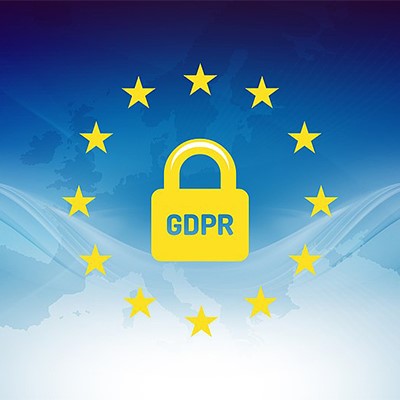
Furthermore, the influence of GDPR extends far beyond the borders of the EU. Its robust framework has set a precedent globally, inspiring and influencing data protection regulations in various countries. Many jurisdictions have taken cues from the GDPR's principles, adapting and enhancing their legal frameworks to align with the evolving expectations for safeguarding individuals' privacy in an increasingly digital world. As businesses strive to navigate this intricate landscape, the GDPR catalyzes a global paradigm shift in how personal data is handled, emphasizing the importance of ethical and responsible data management practices on a worldwide scale.
Digital Services Act (DSA) and Digital Markets Act (DMA):
The European Union's (EU) Digital Services Act (DSA) and Digital Markets Act (DMA) are a deliberate response to the evolving challenges brought about by the digital age. Introduced with the primary aim of regulating digital platforms and services, these acts reflect the EU's commitment to nurturing fair competition, safeguarding users' rights, and addressing concerns regarding the dominance of major technology companies.
The Digital Services Act (DSA) primarily focuses on enhancing the accountability of online platforms by imposing new obligations related to content moderation, transparency, and user rights. Platforms are required to implement robust measures to tackle illegal content, ensuring a safer and more secure online environment. Additionally, the DSA seeks to establish a more standardized approach to platform governance, promoting transparency in advertising and algorithmic processes.
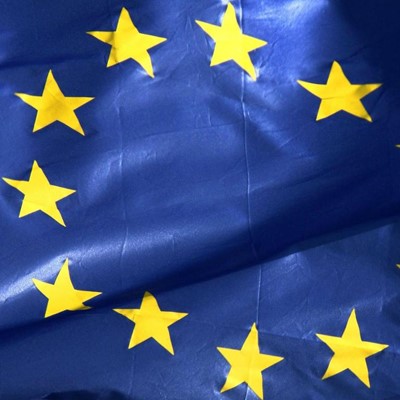
Complementary to the DSA, the Digital Markets Act (DMA) aims at addressing the market power of large digital platforms. By designating certain companies as "gatekeepers," the DMA introduces regulations to prevent anti-competitive behavior and ensure a level playing field for smaller businesses. This includes measures to restrict unfair practices, promote interoperability, and empower users with more control over their online experiences.
As a result of these regulatory measures, companies operating in the digital domain may find themselves compelled to reevaluate their business models and operational practices. Adhering to the standards set by the DSA and DMA requires a shift towards greater transparency, accountability, and enhanced user protection. The potential impact on market dynamics is substantial, with these regulations not only aiming to curb the influence of dominant tech entities but also fostering an environment that encourages innovation, competition, and ultimately a more balanced digital landscape. The effective implementation of the DSA and DMA is poised to shape the future of the digital economy within the EU and could establish precedents for global regulatory frameworks in the digital sphere.
Climate and Environmental Regulations:
Europe's proactive stance on environmental conservation is underscored by a robust framework of climate and environmental regulations aimed at combatting the adverse effects of climate change. With a heightened emphasis on sustainability, the continent has implemented a multifaceted approach, encompassing measures to curtail carbon emissions, promote the widespread adoption of renewable energy sources, and encourage sustainable practices across industries.
In response to the urgent need to address climate change, European nations have set ambitious targets for reducing greenhouse gas emissions, fostering a transition towards a low-carbon economy. This has led to the formulation and implementation of stringent environmental standards designed to mitigate the impact of industrial activities on the environment. Industries such as energy, transportation, and manufacturing are particularly affected, facing the imperative to align their operations with these evolving regulations.
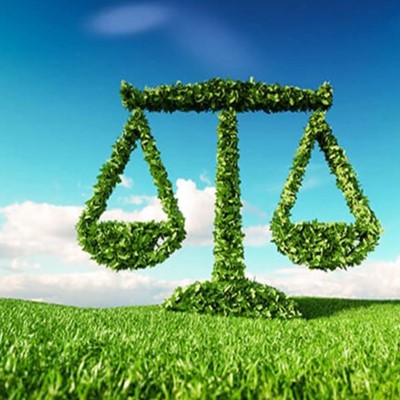
The push for renewable energy sources, coupled with advancements in technology, has fueled a transition towards cleaner and more sustainable practices. Companies operating in energy-related sectors are increasingly challenged to invest in renewable energy alternatives, implement energy-efficient technologies, and adopt circular economy principles. Transportation industries face pressure to reduce their carbon footprint, driving innovation in electric vehicles and sustainable mobility solutions.
Overall, the evolving landscape of climate and environmental regulations in Europe reflects a collective commitment to a greener and more sustainable future. While these regulations impose challenges on businesses to meet higher environmental standards, they also provide opportunities for innovation, growth, and the emergence of a more sustainable economy. As Europe continues to lead in environmental stewardship, businesses play a pivotal role in shaping a greener and more sustainable future for the continent and beyond.
Financial Regulations:
The financial sector in Europe finds itself in a dynamic landscape shaped by a continuous evolution of regulatory frameworks. These regulations span various facets, including banking, investment, and the burgeoning field of financial technology (fintech). As authorities seek to fortify the stability and integrity of the financial system, companies operating in this sector are faced with the imperative to stay abreast of regulatory changes.
Banking regulations in Europe are designed to enhance the resilience of financial institutions, ensuring their ability to withstand economic shocks and safeguarding the interests of depositors. Stricter capital requirements, stress testing, and risk management standards are among the regulatory measures implemented to fortify the banking sector.

In the realm of investments, regulatory frameworks are geared towards fostering transparency, fair practices, and investor protection. Financial institutions engaging in investment activities must navigate evolving rules that govern asset management, trading practices, and disclosure requirements. As sustainable finance gains prominence, regulatory initiatives are increasingly aligning with environmental, social, and governance (ESG) considerations.
The rise of fintech has brought new complexities to financial regulations, with authorities seeking to find a middle ground between fostering innovation and guaranteeing consumer protection. Regulations in this domain address concerns such as data privacy, cybersecurity, and the regulatory standing of emerging financial technologies, including blockchain and cryptocurrencies.
Considering the complexities of these regulatory environments, companies in the financial sector face the dual challenge of adhering to current regulations and anticipating and adjusting to future changes. Staying proactive in response to evolving regulations is vital for these businesses, as compliance not only protects against legal consequences but also builds trust and confidence among clients and stakeholders. In an era where financial markets are becoming more interconnected and technology-driven, the capability to navigate and embrace regulatory changes becomes a critical factor in ensuring the resilience and sustainability of financial operations in Europe.
Pharmaceutical and Healthcare Regulations:
The pharmaceutical and healthcare sectors in Europe operate within a landscape characterized by continuous regulatory evolution. These regulations, governing areas such as drug approvals, clinical trials, and medical device certifications, play a pivotal role in shaping the industry's practices and ensuring the safety and efficacy of healthcare products. Companies within these sectors face the ongoing challenge of adapting to these dynamic regulatory changes to ensure compliance and maintain market access.
In the realm of drug approvals, regulatory bodies impose rigorous standards to evaluate the safety, quality, and efficacy of pharmaceutical products. Companies must navigate complex approval processes, staying informed about shifting regulatory requirements and guidelines. Changes in these regulations can impact the timelines and costs associated with bringing new drugs to market.
Clinical trials are indispensable for evaluating the safety and effectiveness of new medical treatments, and they face rigorous regulatory scrutiny. Evolving regulations in this realm may necessitate adjustments to trial protocols, data collection methods, and ethical considerations. Staying well-informed about these changes is paramount for companies engaged in research and development within the pharmaceutical and healthcare sectors.

The certification of medical devices is another area significantly influenced by regulatory adjustments. Companies producing and marketing medical devices must adhere to evolving standards to ensure the safety and performance of their products. Regulatory changes can affect product development strategies, manufacturing processes, and market entry requirements for medical devices.
To navigate this intricate regulatory landscape successfully, companies in the pharmaceutical and healthcare sectors must establish robust compliance mechanisms. This involves proactive engagement with regulatory authorities, continuous monitoring of regulatory updates, and the integration of flexible strategies to adapt swiftly to changing requirements. Ultimately, the ability to align with evolving regulations not only ensures product compliance but also facilitates timely market access, fostering innovation and advancements in healthcare offerings within the European market.
Brexit Impact:
The consequences of Brexit have given rise to a reshaped regulatory landscape, presenting businesses in both the United Kingdom (UK) and the European Union (EU) with a mix of challenges and opportunities. The UK's exit from the EU's single market and customs union has triggered changes in trade relations, regulatory frameworks, and supply chain dynamics.
A key challenge arises from the emergence of new trade barriers between the UK and the EU. The implementation of customs checks, tariffs, and non-tariff barriers has modified the landscape of cross-border trade, influencing the movement of goods and services between these economic entities. Businesses are now grappling with the complexities of adapting to these altered trade realities, necessitating changes in logistics, documentation, and compliance procedures.
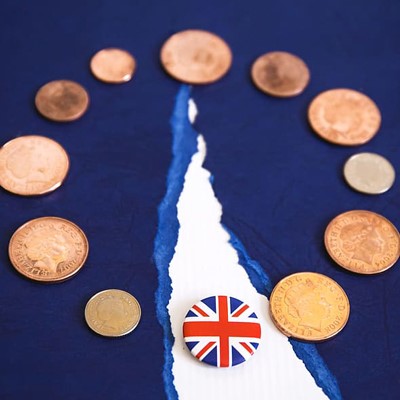
Regulatory misalignments have arisen as a consequence of the UK's divergence from EU regulations. Industries such as finance, healthcare, and manufacturing may find themselves subject to distinct sets of rules and standards, requiring companies to navigate dual regulatory environments. This divergence may impact product approvals, compliance processes, and the overall regulatory compliance landscape, prompting businesses to reassess and adjust their operations accordingly.
Supply chain disruptions have been a notable consequence of the Brexit transition. Companies that rely on intricate supply chains spanning the UK and EU may face challenges related to increased lead times, border delays, and uncertainties in procurement. These disruptions have prompted businesses to reassess their supply chain strategies, with some opting for localization or diversification to mitigate risks associated with cross-border trade complexities.
Despite these challenges, the post-Brexit landscape also presents opportunities for businesses. The newfound autonomy allows the UK to forge independent trade agreements, potentially opening up new markets and avenues for growth. Companies that adeptly navigate the evolving regulatory landscape, seize emerging opportunities, and optimize their supply chain strategies stand to position themselves strategically in the evolving post-Brexit business environment. As businesses continue to adapt to the new realities, resilience, agility, and strategic foresight become key attributes for success in the dynamic UK-EU relationship.
Consumer Protection:
The landscape of consumer protection regulations is undergoing continuous evolution, introducing shifts that profoundly influence how businesses engage with their customers. These ongoing changes encompass a spectrum of areas, from customer interactions and complaint resolution to the fundamental aspects of ensuring product safety.
Businesses are navigating a paradigm where heightened consumer protection regulations necessitate a more transparent and accountable approach to customer relations. The way companies communicate with their customers, disclose information and handle transactions is increasingly under scrutiny. Compliance with evolving regulations often requires businesses to enhance transparency in their marketing practices, clearly articulate product information, and provide accessible channels for consumer inquiries.
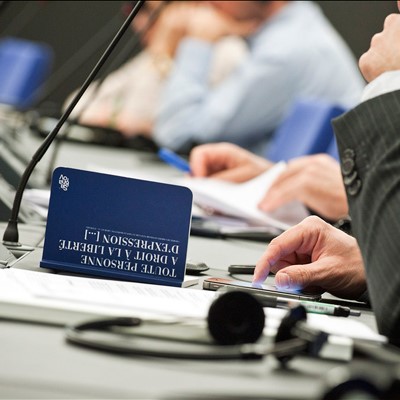
Moreover, the evolution of consumer protection regulations significantly impacts the mechanisms by which businesses handle complaints and address customer concerns. Stricter guidelines may mandate expedited and efficient resolution processes, emphasizing fair treatment and prompt responses. Companies are compelled to invest in robust customer service systems, dispute resolution mechanisms, and transparency in refund or return policies to align with these evolving standards.
At the core of these regulatory changes is a heightened focus on product safety. Regulations aim to ensure that products reaching consumers meet stringent safety standards. This encompasses everything from manufacturing processes to labeling and disclosure of potential risks. Businesses must invest in rigorous quality control measures, product testing, and compliance verification to safeguard consumer interests and maintain regulatory adherence.
In this evolving landscape of consumer protection regulations, businesses that actively adjust to these changes are poised to build stronger connections with their customer base. By emphasizing transparency, swift complaint resolution, and rigorous product safety measures, companies not only showcase their dedication to compliance but also nurture trust and loyalty in an increasingly discerning consumer market. The changing regulatory environment propels businesses toward a customer-centric approach that aligns with the overarching aim of enhancing consumer rights and protections.
Technology and AI Ethics:
In the swiftly progressing field of technology, particularly in artificial intelligence (AI), the regulatory framework is continuously evolving to tackle the ethical implications and privacy concerns linked to these advancements. As AI technologies become more integrated into various aspects of society, spanning from healthcare to finance, the demand for robust regulations overseeing their development and implementation becomes more evident. Striking a careful balance between encouraging innovation and ensuring ethical AI use, regulators are anticipated to adjust and refine their frameworks to stay in step with technological progress.

Companies actively engaged in AI technologies find themselves at the forefront of this evolving landscape, necessitating a proactive and vigilant approach. Staying mindful of potential regulatory changes is crucial as ethical considerations, data privacy, and accountability become focal points for policymakers. Businesses operating in the AI space not only need to adhere to existing regulations but also anticipate and prepare for future regulatory developments, ensuring that their AI applications align with evolving ethical standards.
Taxation:
In response to the challenges posed by the digitalization of economies, European countries are actively engaged in collaborative efforts to forge international agreements on corporate taxation. The evolving landscape in this domain holds profound implications for multinational companies operating within the region. The discussions and negotiations on digital taxation aim to address the complexities arising from the borderless nature of digital business models, where companies can operate and generate revenue without a physical presence in a particular jurisdiction.

The potential impact on multinational companies encompasses adjustments to existing tax structures, the introduction of new tax frameworks, and efforts to ensure a fair distribution of tax burdens. As countries work towards consensus on international tax standards, businesses face the prospect of navigating a more intricate taxation landscape. Adapting to these changes may require multinational companies to reassess their tax planning strategies, comply with emerging regulatory frameworks, and engage in transparent and responsible tax practices. The outcome of these international agreements will likely shape the future of corporate taxation, influencing how businesses, particularly those with a global footprint, fulfill their fiscal responsibilities in a digitally interconnected world.
Telecommunications and 5G:
The rollout of 5G technology represents a transformative shift in the telecommunications landscape, bringing with it not only advancements in connectivity but also heightened regulatory considerations. Governments and regulatory bodies are actively shaping frameworks to oversee the deployment of 5G networks, emphasizing critical aspects such as security, fair competition, and efficient spectrum allocation. Security concerns, given the increased reliance on interconnected devices, have prompted regulatory initiatives to establish stringent standards and protocols for safeguarding 5G infrastructure against potential cyber threats.

At the same time, ensuring fair competition in the telecommunications sector is a key regulatory goal, with measures in place to prevent monopolies and foster an environment that encourages innovation and consumer choice. Efficient spectrum allocation, a fundamental aspect of 5G deployment, is also subject to regulatory oversight to manage the limited radio frequencies effectively.
As telecommunications providers endeavor to deploy 5G technologies, they must navigate dynamic regulatory landscapes, ensuring adherence to security protocols, promoting fair market practices, and securing access to the spectrum crucial for the optimal functioning of advanced 5G networks. Harmonizing these regulatory aspects is crucial for unlocking the full potential of 5G technology while preserving the integrity and competitiveness of the telecommunications ecosystem.
Conclusion:
To sum up, the changing regulatory environment in Europe spans a wide range of sectors, offering both challenges and opportunities for businesses. Whether it's data protection, digital services, climate action, financial regulations, or emerging technologies like 5G, companies face the task of navigating through a complex network of rules and standards. Proactively adapting to these changes ensures not just compliance but also positions businesses to thrive in an environment where ethical considerations, sustainability, and innovation hold significant weight. As the regulatory framework continues to evolve, businesses that maintain agility, ethical foundations, and responsiveness to market dynamics are well-positioned to succeed in the ever-shifting European business landscape.